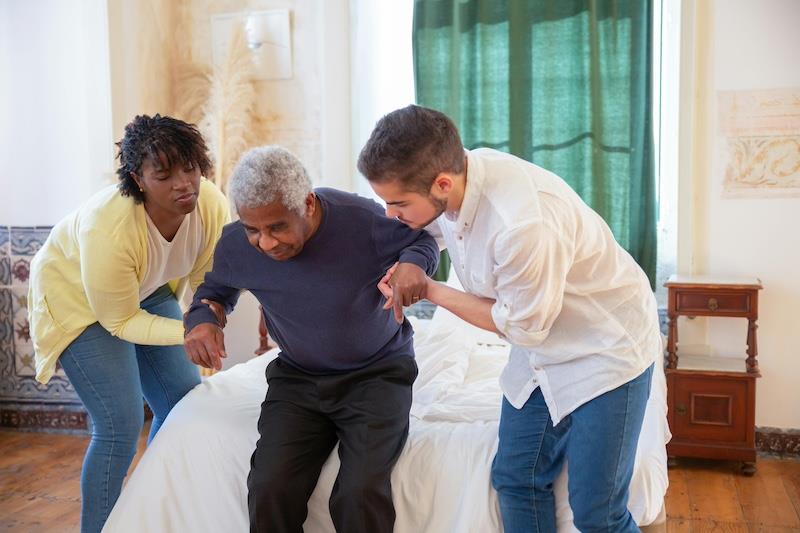
How To Prove Negligence In Nursing Home Malnutrition Cases Robotics & Automation News
Malnutrition in nursing homes is a serious issue that often results from negligence, such as inadequate staffing, poor meal planning, or failure to monitor residents' dietary needs.
In Silver Spring, families rely on strong evidence to hold nursing homes accountable, including medical records, witness testimonies, and expert opinions to prove that the facility failed in its duty of care.
If you are looking for a nursing home abuse lawyer in Silver Spring , look for one who can guide you through gathering the necessary evidence and building a strong case.
By identifying signs of malnutrition and connecting them to negligence, an experienced lawyer will fight to secure justice and compensation for your loved one. Legal support ensures nursing homes are held responsible and prioritizes resident safety.
Let's take a look at how you can prove negligence in nursing home malnutrition cases.
Exploring Malnutrition Issues in Nursing FacilitiesIn nursing homes or care facilities for the elderly, when people don't get the nutrients to stay healthy, it causes malnutrition. This can happen due to not getting enough food, poor meal planning, or even neglecting their nutrition.
When residents in nursing homes suffer from malnutrition, they might lose weight and have weak immune systems, which makes them more likely to get sick easily and frequently.
Residents' families usually notice these symptoms, leading them to look into whether there's any neglect happening in the facility.
Recognizing Indications of MalnourishmentDetecting the signs of malnutrition is important when gathering evidence for a case. Notable clues include weight reduction, tiredness, and muscle decline.
Additional indications could be dry skin, fragile nails, and a tendency for frequent infections. Documenting these observations meticulously can assist in legal matters.
Listing the Duties of a CaretakerIt must be proven that caregivers did not fulfill their responsibilities properly to establish negligence. They must ensure balanced meals are provided and monitor food consumption while addressing requirements.
Reviewing care plans and meal logs can uncover inconsistencies or gaps in care. When caregivers fail in these duties, it may amount to negligence.
Collecting ProofGathering proof plays a role in supporting allegations of negligence. Documents such as medical records, dietary journals, and testimonials from witnesses are forms of evidence.
Furthermore, pictures that show a patient's state and expert opinions from healthcare providers can add weight to the case. Having a collection of evidence is essential for constructing an argument.
Determining a Violation of ResponsibilityTo establish negligence in a nursing home case, it is necessary to show that there was a breach of duty on the part of the facility in meeting the required standard of care as mandated by law.
Examining both state and federal regulations can serve as a reference point for determining the expected levels of care. The presence of evidence indicating a departure from these established standards may suggest negligence on the part of the nursing home.
Showing Cause and EffectConnecting malnutrition to the nursing home's actions or inaction is vital. This requires demonstrating a link between negligence and the residents' malnutrition, which can be supported by medical testimony .
Establishing a cause-and-effect relationship bolsters the argument.
Exploring the Intricacies of ProcessesSuccessfully navigating processes involves grasping the complexities of malpractice allegations in nursing homes to ensure justice is served for those affected by negligence issues.
Seeking advice from experts specialized in nursing home neglect is crucial as they offer assistance in comprehending one's entitlements and the required actions for filing a claim.
Their knowledge and skills guarantee a review of all facets of the case to achieve resolution.
The Importance of AdvocatingAdvocacy has an impact on tackling malnutrition in nursing homes. Families bring attention to these concerns to push for changes in the system together with organizations dedicated to caring for seniors.
This can enhance initiatives aimed at improving conditions in nursing homes and benefitting the community at large.
Securing the Well-being of ResidentsTo prevent malnutrition, nursing homes need to take steps by conducting nutritional evaluations and customizing meal plans based on each resident's requirements.
Staff must receive training on nutrition and caring for the elderly to avoid negligence. Maintaining safety requires monitoring and enhancements in care quality standards.
End NoteIn nursing homes, establishing negligence in instances of malnutrition requires attention and a deep comprehension of healthcare norms. Identifying indicators of malnutrition and collecting proof while seeking advice are essential initial actions.
Advocacy and responsibility play roles in promoting improvements to guarantee residents the proper nourishment they deserve. By working through combined efforts with families and experts, we can aim for a future where malnutrition in nursing homes is uncommon.
Legal Disclaimer:
MENAFN provides the
information “as is” without warranty of any kind. We do not accept
any responsibility or liability for the accuracy, content, images,
videos, licenses, completeness, legality, or reliability of the information
contained in this article. If you have any complaints or copyright
issues related to this article, kindly contact the provider above.


















Comments
No comment